Related Research Articles
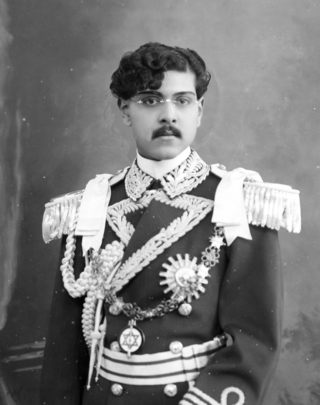
Tribhuvan Bir Bikram Shah Dev, was the eighth King of Nepal. Born in Kathmandu, the capital city of Nepal, he ascended to the throne at the age of five, upon the death of his father, Prithvi Bir Bikram Shah, and was crowned on 20 February 1913 at the Nasal Chowk, Hanuman Dhoka Palace in Kathmandu, with his mother acting as regent. At the time of his crowning, the position of monarch was largely ceremonial, with the real governing power residing with the Rana family.

Khushwant SinghFKC was an Indian author, lawyer, diplomat, journalist and politician. His experience in the 1947 Partition of India inspired him to write Train to Pakistan in 1956, which became his most well-known novel.
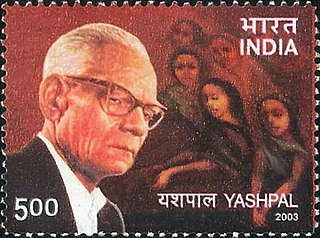
Yashpal Singh was a Hindi-language writer, political commentator, a socialist and an essayist. He wrote in a range of genres, including essays, novels and short stories, as well as a play, two travel books and an autobiography. He won the Hindi-language Sahitya Akademi Award for his novel Meri Teri Uski Baat in 1976 and was also a recipient of the Padma Bhushan.
Mayo College is a boys-only private boarding school in Ajmer, Rajasthan, India. It was founded in 1875 by the 6th Earl of Mayo, who was the Viceroy of India from 1869 to 1872, making it one of the oldest public boarding schools in India.
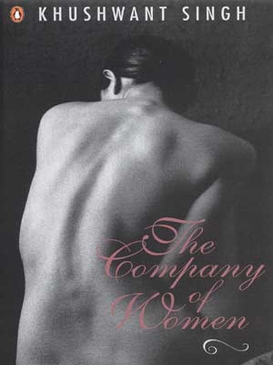
The Company of Women is a novel by Indian author Khushwant Singh about a divorced man's extensive sexual exploits. The novel also addresses themes of globalization and the hedonistic lifestyles of the newly wealthy upper-middle class.

Train to Pakistan is a historical novel by writer Khushwant Singh, published in 1956. It recounts the Partition of India in August 1947 through the perspective of Mano Majra, a fictional border village.
Honorary Magistrate, Sardar Bahadur, Sir Sobha Singh, M.L.A., M.P. was an Indian civil contractor, prominent builder and real estate developer of the modern day Delhi.

The Kakori Train robbery was a train robbery that took place at Kakori, a village near Lucknow, on 9 August 1925, during the Indian independence movement against the British rule in India. It was organized by the Indian revolutionaries of Hindustan Republican Association (HRA).
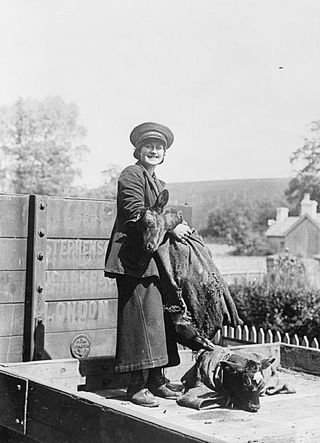
A porter is a railway employee. The role of a porter is to assist passengers at railway stations, and to handle the loading, unloading, and distribution of luggage and parcels. In the United States the term was formerly used for employees who attended to passengers aboard sleeping cars, a usage unknown to British or Commonwealth English where such staff are known as attendants or stewards, terms which are also common in translation in non-English speaking European train travel.
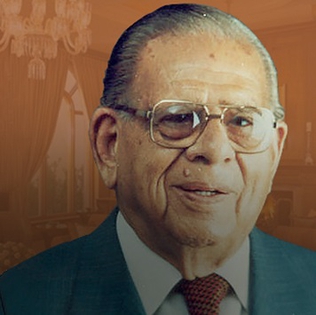
Rai Bahadur Mohan Singh Oberoi was an Indian hotelier, the founder and chairman of Oberoi Hotels & Resorts, India's second-largest hotel company, with 31 hotels in India, Egypt, Indonesia, UAE, Mauritius and Saudi Arabia.

Train to Pakistan is a 1998 Indian Hindi film adapted from Khushwant Singh's 1956 classic novel by the same name set in the Partition of India of 1947 and directed by Pamela Rooks. The film stars Nirmal Pandey, Rajit Kapur, Mohan Agashe, Smriti Mishra, Mangal Dhillon and Divya Dutta.

The Perfect Murder is a 1988 English-language Indian film directed by Zafar Hai and produced by Merchant-Ivory. The film is based on the 1964 novel The Perfect Murder by British crime fiction writer HRF Keating and stars Naseeruddin Shah as Inspector Ghote, the leading character in Keating's novels. Swedish actor Stellan Skarsgård as well as many noted Indian actors such as Madhur Jaffrey, Amjad Khan, Dalip Tahil, Ratna Pathak, Annu Kapoor and Johnny Walker appear in the film.
The Farrer Park address was an assembly of the surrendered Indian troops of the British Indian Army held at Farrer Park in Singapore on 17 February 1942, two days after the Fall of Singapore. The assembly was marked by a series of three addresses in which the British Malaya Command formally surrendered the Indian troops of the British Indian Army to Major Fujiwara Iwaichi representing the Japanese military authority, followed by transfer of authority by Fujiwara to the command of Mohan Singh, and a subsequent address by Mohan Singh to the gathered troops declaring the formation of the Indian National Army to fight the Raj, asking for volunteers to join the army.

Arun Joshi (1939–1993) was an Indian writer. He is known for his novels The Strange Case of Billy Biswas and The Apprentice. He won the Sahitya Akademi Award for his novel The Last Labyrinth in 1982. His novels have characters who are urban, English speaking and disturbed for some reason. According to one commentator, "The shallowness of middle class society is not for him a point of rhetoric, intended to show off his own enlightened superiority, but a theme to be explored with actual concern."
SirShri Ram was an Indian industrialist and philanthropist. He was the son of Rai Bahadur Ram Kishen Das Gurwale, the founder of the Delhi Cloth & General Mills, one of the oldest companies in India.
Gurdial Singh Rahi was an Indian writer and novelist who wrote in Punjabi. He started his literary career in 1957 with a short story, "Bhaganwale." He became known as a novelist when he published the novel Marhi Da Deeva in 1964. The novel was later adapted into the Punjabi film Marhi Da Deeva in 1989, directed by Surinder Singh. His novel Anhe Ghore Da Daan was also made into a film of the same name in 2011 by director Gurvinder Singh. Singh was honoured with the Padma Shri in 1998 and Jnanpith Award in 1999.
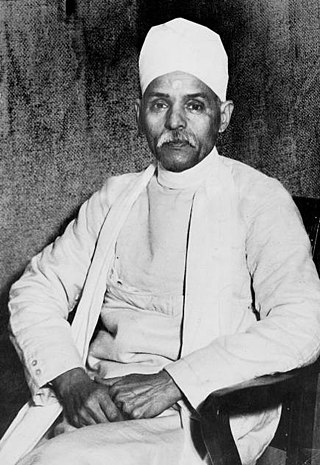
Madan Mohan Malaviya was an Indian scholar, educational reformer and politician notable for his role in the Indian independence movement. He was president of the Indian National Congress three times and the founder of Akhil Bharat Hindu Mahasabha. He was addressed as Pandit, a title of respect.
Durgavati Devi, popularly known as Durga Bhabhi, was an Indian revolutionary and freedom fighter. She was one of the few women revolutionaries who actively participated in armed revolution against the ruling British Raj. She is best known for having accompanied Bhagat Singh on the train journey in which he made his escape in disguise after the killing of John P. Saunders. Since she was the wife of another Hindustan Socialist Republican Association (HSRA) member Bhagwati Charan Vohra, other members of HSRA referred to her as Bhabhi and became popular as "Durga Bhabhi" in Indian revolutionary circles.
Khushwant Lal Wig (1904–1986) was an Indian physician, medical academic, writer and the director of the All India Institute of Medical Science, New Delhi. He was a Fellow of the Royal College of Physicians of London and a recipient of Dr. B. C. Roy Award, the highest Indian award in the medical category. The Government of India awarded him the third highest civilian honour of the Padma Bhushan, in 1964, for his contributions to the Medical science.
K. L. Gauba, also known as Kanhaiya Lal Gauba or Khalid Latif Gauba, was an Indian lawyer, writer, politician, and son of Lala Harkishen Lal. Born into a Hindu family, Gauba later converted to Islam and was elected to the Punjab Legislative Assembly by a Muslim constituency. He emigrated to India following partition and died in poverty.
References
- 1 2 "The education of Sir Mohan Lal: on Khushwant Singh's "Karma." | Studies in Short Fiction | Find Articles at BNET". 2010-02-25. Archived from the original on 2010-02-25. Retrieved 2024-04-05.
- ↑ "A bearer character". June 15, 2022.